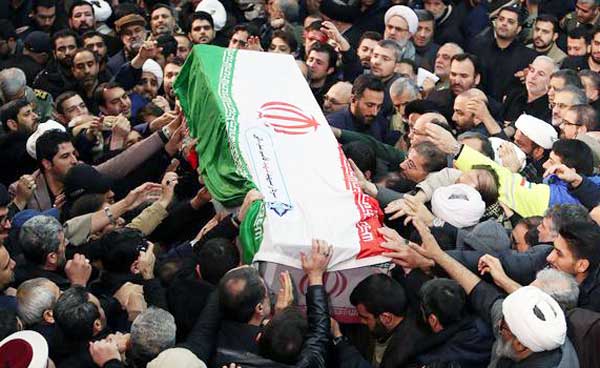
The second decade of the 21st century has had an inauspicious start in the Middle East. The killing of an Iranian General in American drone strike has raised the temperatures in the Middle East to an intolerable level and an intensification of conflict in that theatre is very likely.
India has two basic interests in the area, ensuring oil supply at a reasonable price and safety of a nearly 2-3 million Indian workers in the area. Both these issues are intimately linked to our economic wellbeing. Unfortunately India has very little ‘influence’ over the events there and has no choice but to fashion its response keeping in view these two objectives.
An in depth understanding of the various forces at play in the region and their likely trajectory is must for us if we are not to find ourselves on the wrong foot in quick sand of Middle Eastern politics.
Right from the end of the World War two and Cold War, the Middle East was a divided house. The progressives or Socialist leaning group of countries led by Egypt and conservatives led pro US countries headed by Saudi Arabia. Iran and Turkey, though not strictly part of the Middle East, were both firmly in the Western camp.
The two competing ideologies were the Pan Arabism of Nasser of Egypt and Pan Islamism promoted by Saudi Arabia. While the numerical balance was in favour of the Arabism, it was the Pan Islamists who held the greater clout as these (with the exception of Libya under Gadafi) were the rich oil exporting countries.
The two rival camps were supported militarily by the two super powers. The Arabist’s made the Palestine issue as their rallying cry and destruction of Israel as their objective. The Pan Islamists on the other hand were pro West and favoured accommodation with Israel. Iran under the Shah was firmly the pan Islamist camp.
The 1979 revolution led by Khomeini in Iran changed the Middle East as we now it. Iran made export of its revolution to other countries as its mission and hoped to again lead the Islamic world, its Shia roots notwithstanding. Iran also emerged as the steadfast supporter of the Palestinian cause and impeccable foe of Israel.
The Arab countries rallied against this threat and the Iran-Iraq war saw the unlikely alliance of Saudi Arabia with Socialist Baathist Iraq under Saddam Hussein. The West fully backed Iraq in this war.
The events in 21st century that saw destruction of Saddam Hussein’s Iraq and a virtual Shia take over of Iraq. In alliance with Syria and Lebanon based Hizbollah, Iran spread its influence in Yemen by backing Shia Houthi rebels.
The second decade of 21st has seen a radical re-alignment with Iran, Turkey and Malaysia coming together on an Islamist platform while most Arab countries with Saudi Arabia in lead have begun to champion the Arab and Sunni cause.
Brief rise of ISIS or Islamic State in Syria saw both the factions come together for brief period. But no sooner had the ISIS been defeated, the Iran vs Arabs rivalry has come centre stage.
The Middle East situation is inherently unstable as Iran has been over reaching itself, both militarily as well as ideologically. Despite its championing of Islamic cause and opposition to Islamophobia in the West, Iran has no hope in hell to ever be accepted as leader of Islamic world. The Shia Sunni divide is too deep for that. While Arab cause will always being to fore the problem of Palestine and Israel’s inability to make compromises.
Complicating all this geo politics is the realization by the oil rich countries that with alternate sources of energy making rapid progress, oil will soon lose its strategic value as well as economic utility. The attempts by the oil rich countries to woo India are one of the consequences of this realization.
Political unity has always eluded the Middle East. Despite one language, Arabic, one faith (largely) Sunni Islam and even one race, the region has been divided into several states constantly at each-others throat. One primary reason for this is the historical memories of these countries of having been the centre of Islamic world at some point in history.
Saudi Arabia claims leadership on the basis of its control over Mecca-Medina. Egypt has memories of its ancient Pharaoh past while Damascus, Baghdad and Istanbul, all had ruled the Muslim world and had its own Caliphates. This enduring struggle for leadership makes any kind of unity of purpose difficult. Middle East is also well known for its fickle alliances of the most temporary kind.
India that has economic stakes in the region in terms of oil dependency and huge diaspora, has to be nimble footed diplomatically to negotiate the minefield of Middle Eastern politics.




